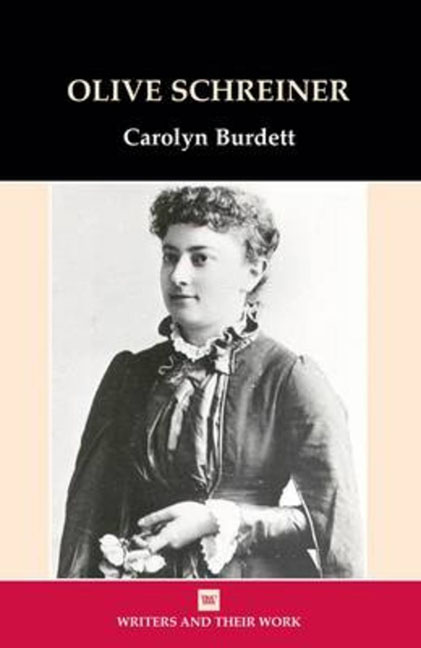Book contents
- Frontmatter
- Dedication
- Contents
- Acknowledgements
- Biographical Outline
- Abbreviations
- Introduction
- 1 Evangelicalism, Freethought and Love: Undine and The Story of an African Farm
- 2 Sex Work: Woman and Labour, Stories and Allegories, From Man to Man
- 3 A Returned South African
- Notes
- Select Bibliography
- Index
Introduction
- Frontmatter
- Dedication
- Contents
- Acknowledgements
- Biographical Outline
- Abbreviations
- Introduction
- 1 Evangelicalism, Freethought and Love: Undine and The Story of an African Farm
- 2 Sex Work: Woman and Labour, Stories and Allegories, From Man to Man
- 3 A Returned South African
- Notes
- Select Bibliography
- Index
Summary
In April 1883, the curmudgeonly Saturday Review performed a hatchet-job on what it judged ‘a clever, imaginative, original, and terribly dull’ recently published novel. It was called The Story of an African Farm, and the reviewer lamented that while the title might lead a reader to expect ‘adventure on the borderland between savagery and civilization’, in fact the story was a mix of questionable morals and wayward plotting. Many readers, however, disagreed, and within a few months of first appearing it was sold out and a second edition being prepared. ‘Ralph Iron’, the name on the title page, was soon discovered to be the pseudonym of a young woman from South Africa called Olive Schreiner, and the novel made her a literary celebrity.
The second edition of The Story of an African Farm contained a Preface by the author which in part responded to the Saturday Review's comments. Acknowledging that some readers were puzzled by a novel where some characters appear only fleetingly, yet seem important, Schreiner notes that ‘Human life may be painted according to two methods’:
There is the stage method. According to that each character is duly marshalled at first, and ticketed; we know with an immutable certainty that at the right crises each one will reappear and act his part, and, when the curtain falls, all will stand before it bowing. There is a sense of satisfaction in this, and of completeness. But there is another method – the method of the life we all lead. Here nothing can be prophesied. There is a strange coming and going of feet. Men appear, act and re-act upon each other, and pass away. When the crisis comes the man who would fit it does not return. When the curtain falls no one is ready. When the footlights are brightest they are blown out; and what the name of the play is no one knows …. Life may be painted according to either method; but the methods are different. The canons of criticism that bear upon the one cut cruelly upon the other. (SAF 27)
The different kind of realism advocated here is explicitly associated with the author's colonial identity.
- Type
- Chapter
- Information
- Olive Schreiner , pp. 1 - 11Publisher: Liverpool University PressPrint publication year: 2005



